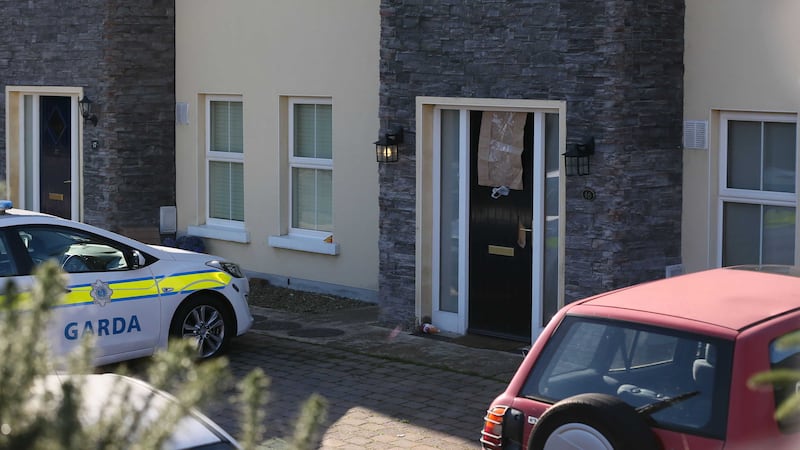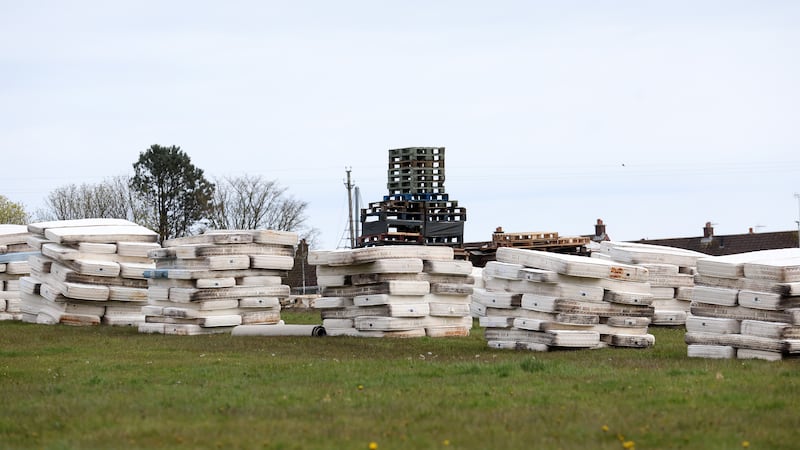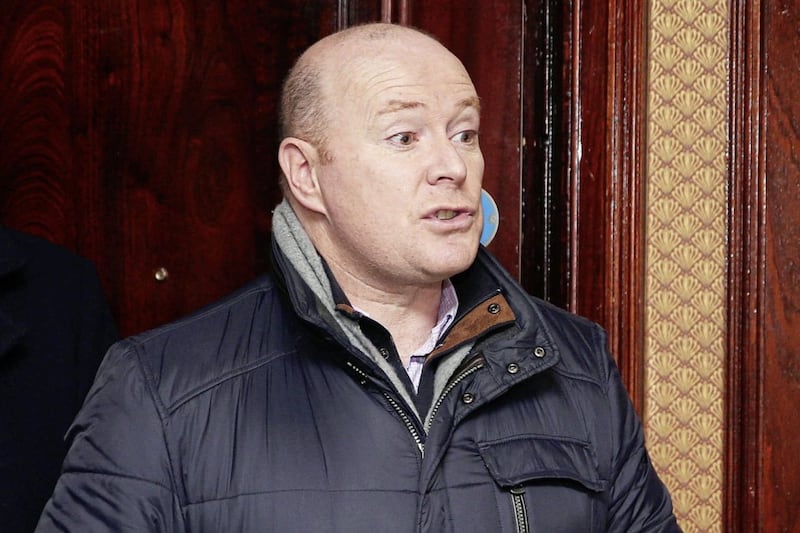THE fatal shooting of unarmed Garda Tony Golden has raised fresh concerns about resources for Gardaí in the border region.
The father-of-three was responding alone to a domestic disturbance in the Mullach Alainn estate in Omeath when he was shot dead at around 6pm on Sunday.
The murder took place less than three years after the victim’s colleague, Detective Garda Adrian Donohoe, died after being shot at point blank range by a criminal gang during a robbery at Lordship Credit Union in Bellurgan in January 2013.
Gardaí are treating the tragedy as a murder-suicide. Adrian Crevan Mackin (24) shot and seriously injured his partner, before turning his gun on the garda.
It has emerged that Garda Golden (36) had accompanied Mackin’s partner to the house to collect personal belongings after she had contacted officers at the local Garda station alleging she had been the victim of domestic violence.
Shortly after the officer and the woman entered the house, Mackin produced a handgun and shot his partner in the head as she stood in a bedroom.
Garda Golden was then shot dead as he attempted to go to the woman’s aid. Mackin then died by suicide. Neighbours raised the alarm.
The couple's two young children were being cared for by their mother's family at the time and were not in the house.
The young mother remains in a critical condition at Dublin’s Beaumont Hospital today.
The scene at Mullach Alainn in Omeath where a Garda was killed last night. pic.twitter.com/VVMVDjPPLa
— Sinéad Hussey (@SineadHus) October 12, 2015Mackin, who was known to both gardaí and the PSNI, had been on bail since shortly after appearing before the Special Criminal Court in Dublin charged with IRA membership in January.
The suspect, who had convictions on both sides of the border, is believed to have been linked to the breakaway dissident republican group known as the IRA.
He had been arrested by gardaí from the Special Detective Unit in Dundalk as part of cross-border cooperation with the PSNI to investigate the activities of dissident republicans in the border region, involving searches in Dundalk and Newry.
The Republic’s justice minister Frances Fitzgerald has defended the decision to send Garda Golden alone to the home of a dissident republican suspect.
Speaking to RTÉ’s Morning Ireland she said: “The reality is that gardaí around the country go out and do their job every day in all sorts of circumstances... Gardaí every day of the week go out and respond to domestic incidents and never know what they are going to face. That is the reality of the situation of the work that our Gardaí do day in, day out.”
The minister said there would be a “full investigation” into all the circumstances that led to Garda Golden’s murder.
However, local councillor and retired Special Branch detective Richie Culhane said the garda had been placed in a “very dangerous situation” and questions would be asked about how an unarmed officer could be sent along to a house where “a suspected terrorist was residing”.
Mr Culhane called for a “very serious look” at the “whole policing along the border”, particularly in north Louth.
During the height of the Troubles, the garda presence in Louth was high, but the peace process, coupled with the economic downturn, has led to numbers dropping in recent years.
Louth TD Fergus O’Dowd last month published Department of Justice figures which showed that the number of Gardaí in the Dundalk division, including Omeath, Blackrock, Carlingford, Dromad and Hackballscross, had plunged by 13.4 per cent since 2010. The number of officers in Omeath had dropped from five to four.
Meanwhile, Women’s Aid director Margaret Martin has issued a statement expressing shock and deep sadness at the “domestic violence incident” that had led to the garda’s death.
Paying tribute to An Garda Síochana, she added: “Domestic violence is a very serious crime and it affects one in five women in Ireland. This terrible tragedy highlights the crucial role members of An Garda Síochána play in helping women escape from violent and abusive partners.
"Domestic violence is present in every community in every village, town and city in Ireland and every day women reach out to the Gardaí for help and support. Women’s Aid also works closely with An Garda Síochána to ensure women and children get the best possible response when they seek help.
“This terrible incident is a stark reminder of the dangerous and sometimes fatal nature of domestic abuse and the tragedy it brings, not only to women and children, but to frontline responders and the community around them too,” Ms Martin added.




